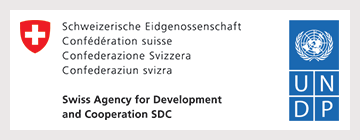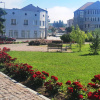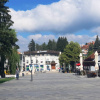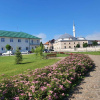National Assembly of the Republic of Serbia / Activities / National Assembly / Working Bodies / Committee Sittings outside of the National Assembly Seat / Details of the Committee sitting
Committee Sittings outside of the National Assembly Seat
Thursday, 23 April 2015
26th Sitting of the Committee on Human and Minority Rights and Gender Equality
At the sitting held on 23 April in Sjenica, the members of the Committee on Human and Minority Rights and Gender Equality discussed the economic empowerment of women at the local level.
The sitting was opened by Committee Chairman Meho Omerovic who said this was the first time that the Committee on Human and Minority Rights and Gender Equality was holding a sitting in Sjenica. The goal of the sitting is to discuss the activities and measures conducted at the local level to economically empower women, improve their employment, protection and rights, said Omerovic.
The Committee Chairman said that, according to the available data, Serbia still lacks equal representation of the two genders in all spheres of life and listed the problems of businesswomen in Serbia. In addition, violence against women is still a big social problem, said Omerovic announcing that the topic will be discussed at a public hearing at the National Assembly on 5 May.
The concentrated efforts of the Assembly bodies and representatives of the local-self-government should prompt the state bodies to pass new legislation and improve the status of women and ensure their economic empowerment, concluded Meho Omerovic in his opening address.
Alma Junis, President of the Novi Pazar Association of Single Mothers and One Parent Families, spoke of the problems of single mothers, saying that Serbia has more than 290 thousand single mothers and half a million children living in one parent families. Alma Junis appealed to the state bodies to start addressing the problems of single mothers who are, along with women from rural areas, among the most vulnerable social categories. Junis concluded that what women need are state support measures, good strategies and stimulating measures at the local level.
Indira Kuburovic of the organisation Sandzacki Cilim from Sjenica said that the documents passed at the local and state level are not implemented and asked that concrete help be provided for women from Pester.
The representatives of the Women’s Initiative from Priboj, Gender Equality Union from Tutin, Civic Association Contact from Sjenica and other organisations spoke of the activities implemented by local organisations in order to address the every-day problems of women at the local level and women in rural areas, the legal employment status of women, cooperation with the non-governmental sector, trainings available to women so that they could take on additional employment and healthcare of women in rural areas.
In the discussion, the participants opined that the state policy toward these most vulnerable population categories could be influences through the joint efforts of authorities at all levels and a parliamentary initiative to amend the laws protecting and improving the position of women.
After the sitting the Committee members visited the enterprises ZES-Koton and DAKE TRADE.
The sitting outside of the National Assembly headquarters was held with the support of the OSCE Mission to Serbia.
The sitting was chaired by Committee Chairman Meho Omerovic.
Sjenica: Photo gallery
Other sessions of this committee
Contact the National Assembly Committee

Committee meetings outside the headquarters of the National Assembly are being organized and this sub-site has been produced with the support of the United Nations Development Program (UNDP) and the Swiss Agency for Development and Cooperation (SDC), as part of the project "Strengthening the oversight role and publicity in the work of the National Assembly." The views and content on this subpage do not necessarily represent the views of UNDP and the SDC.





